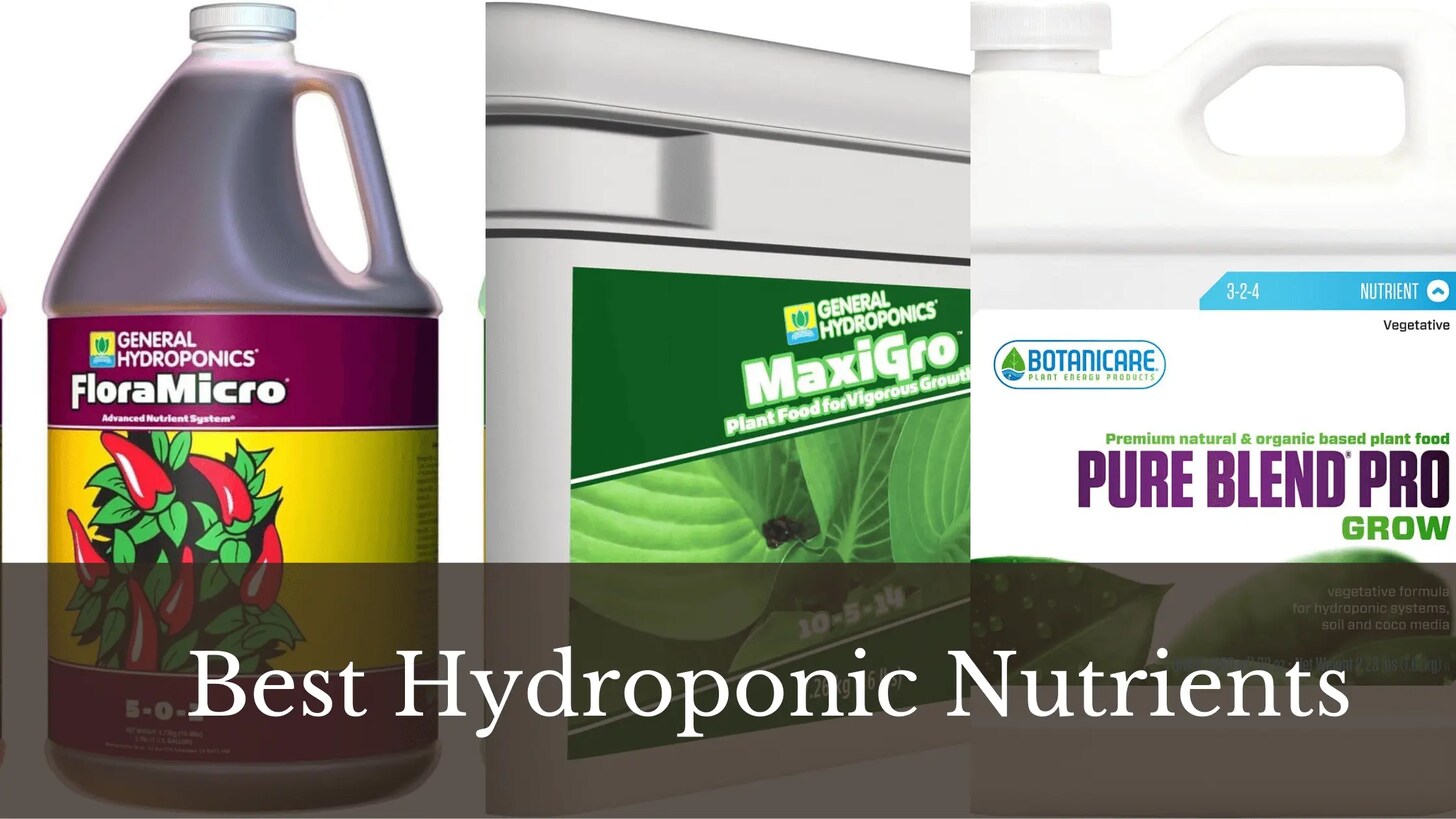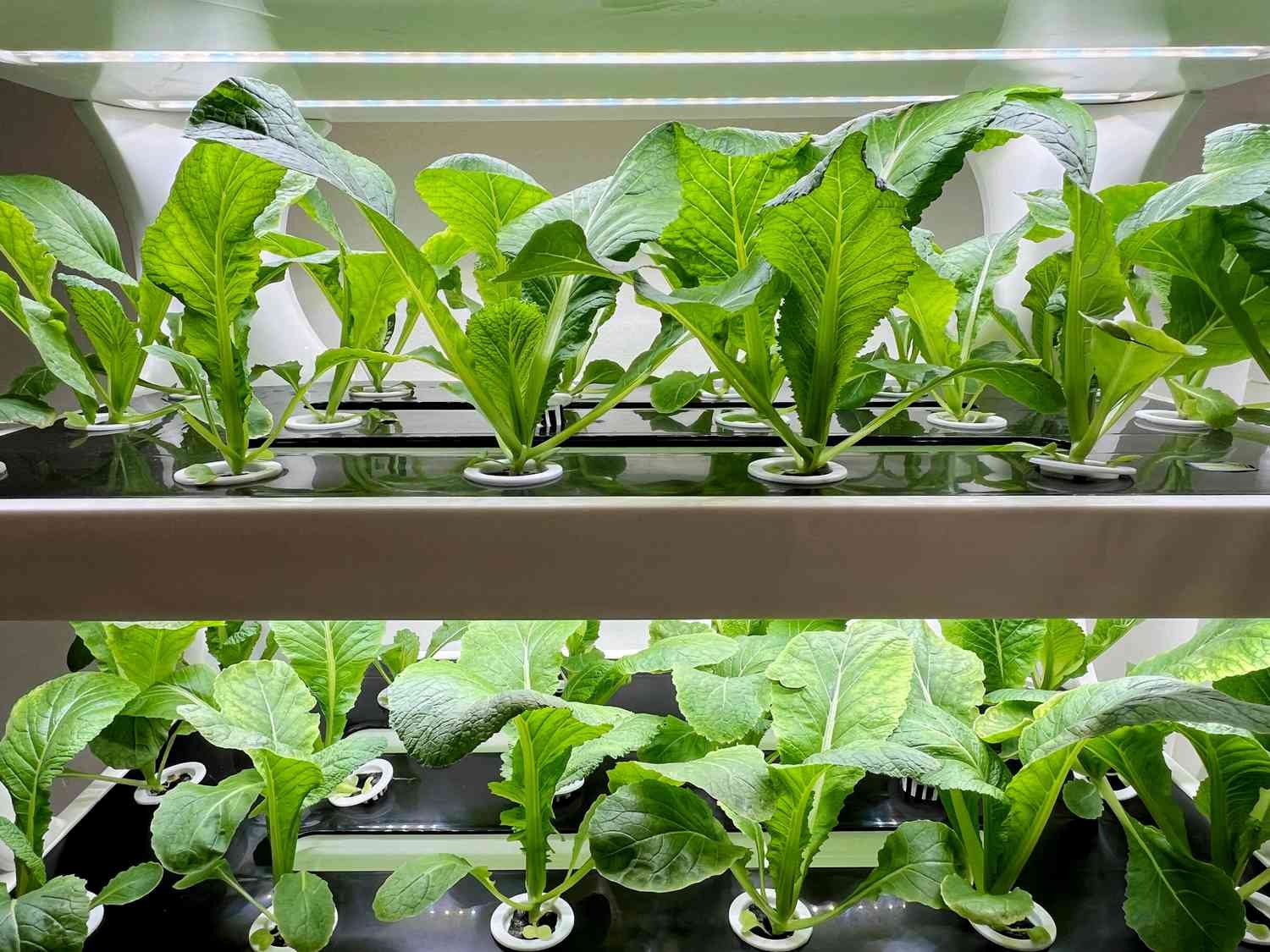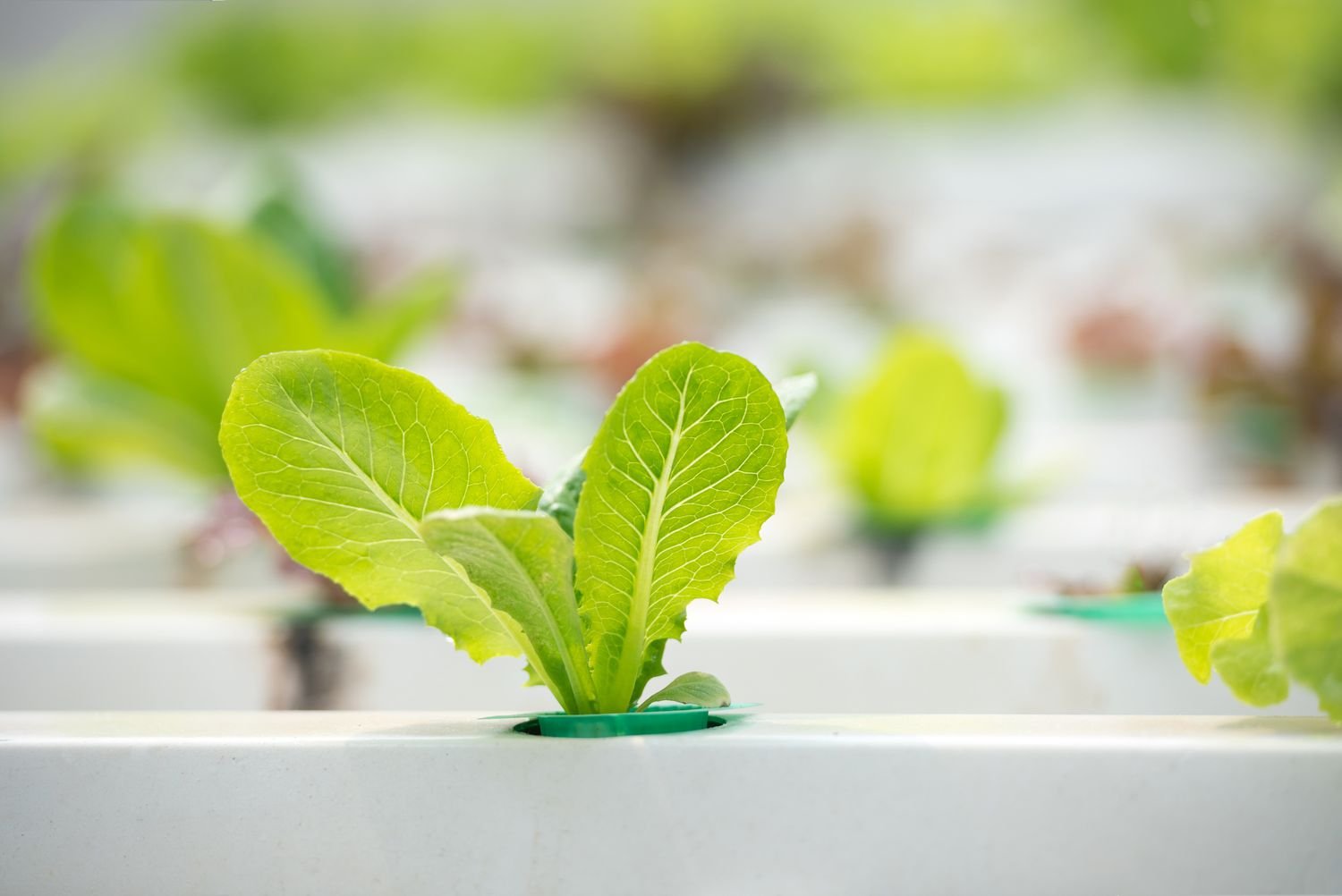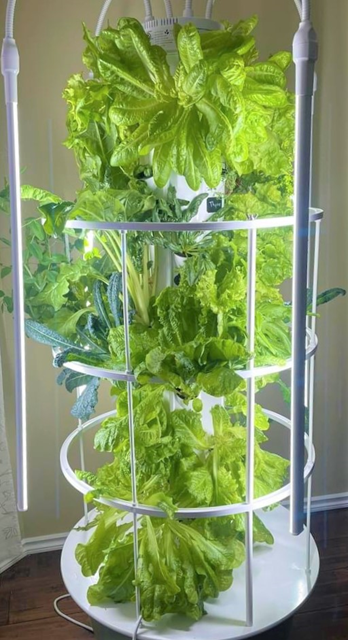Hydroponics is a method of growing plants without soil. It uses nutrient-rich solutions to feed plants directly.
So, what is the best hydroponic solution? Finding the right hydroponic solution can be tricky. Different plants need different nutrients. The right mix ensures healthy growth and good yields. Knowing the best solution helps you grow strong plants. This blog will guide you through the best options.
We will explore what makes a hydroponic solution effective. You’ll learn about the key ingredients and why they matter. Whether you are a beginner or an expert, this guide will help you choose the best solution for your hydroponic system. Get ready to boost your plant growth with the right nutrients!
Introduction To Hydroponic Solutions
Choosing the best hydroponic solution can greatly impact plant growth. Nutrient-rich solutions tailored to specific plants yield optimal results. Properly balanced pH levels are also crucial for success.
Hydroponic gardening has gained popularity in recent years. Many people seek efficient and sustainable ways to grow plants. One crucial element in hydroponics is the nutrient solution. This solution provides essential nutrients that plants need to thrive. Let’s dive deeper into what hydroponic solutions are and their importance.
Definition Of Hydroponics
Hydroponics is a method of growing plants without soil. Instead, plants grow in nutrient-rich water. This method allows plants to access nutrients directly. It leads to faster growth and higher yields. Hydroponics can be used for various plants, including vegetables, herbs, and flowers.
Importance Of Nutrient Solutions
Nutrient solutions are vital in hydroponic systems. They provide essential nutrients that plants need to grow. These nutrients include nitrogen, phosphorus, potassium, and trace minerals. A well-balanced solution ensures healthy plant growth. It also helps prevent nutrient deficiencies. Properly mixed solutions can lead to robust and vibrant plants.
Choosing the right hydroponic solution is crucial. It can make a significant difference in plant health. Ensure you select a solution that suits your plants’ needs. This will help you achieve the best results in your hydroponic garden.
“`
Types Of Hydroponic Systems
When growing plants hydroponically, selecting the right system is crucial. Different hydroponic systems suit different needs. Here, we explore four popular types of hydroponic systems. Each one has unique benefits and requirements.
Nutrient Film Technique
The Nutrient Film Technique (NFT) involves a continuous flow of nutrient solution. This flows over the roots of the plants. The roots absorb nutrients directly from the thin film. This system is ideal for small plants like lettuce. Larger plants may need more support.
| Advantages | Disadvantages |
|---|---|
| Efficient use of water and nutrients | Requires regular monitoring |
| Good oxygen exposure for roots | Not suitable for large plants |
Deep Water Culture
Deep Water Culture (DWC) involves suspending plant roots in a nutrient-rich solution. An air pump oxygenates the water, aiding root health. This system is simple and easy to maintain.
- Low initial cost
- Minimal maintenance
But, it is crucial to ensure the water is oxygenated. Otherwise, root rot can occur.
Aeroponics
Aeroponics uses mist to deliver nutrients to plant roots. The roots hang in the air, and a misting system sprays them with a nutrient solution. This method provides excellent oxygen exposure.
- Fast plant growth
- Efficient nutrient absorption
Yet, aeroponics systems can be expensive. They also require careful monitoring to avoid misting failures.
Drip System
In a Drip System, a pump sends nutrient solution to drip emitters. These emitters drip nutrients directly onto plant roots. This system allows precise control over nutrient delivery.
| Pros | Cons |
|---|---|
| Scalable for large setups | Requires regular cleaning |
| Efficient nutrient use | Potential for clogging |
Choosing the right hydroponic system depends on your specific needs. Consider your plant types and available space. Each system has its unique advantages and challenges.
Key Nutrients For Hydroponics
Hydroponics is a fascinating way to grow plants without soil. The key to success in hydroponics lies in the nutrient solution. This solution provides essential elements that plants need to thrive. Let’s explore the key nutrients for hydroponics.
Macronutrients
Macronutrients are vital for plant growth. These include nitrogen, phosphorus, and potassium. Plants need these nutrients in large amounts. Nitrogen helps with leaf growth. Phosphorus promotes root development. Potassium aids in overall plant health. Other macronutrients include calcium, magnesium, and sulfur. Each plays a specific role in plant growth.
Micronutrients
Micronutrients are needed in smaller amounts. They are just as important. These include iron, manganese, zinc, copper, molybdenum, boron, and chlorine. Iron is crucial for energy production. Manganese aids in photosynthesis. Zinc helps in growth regulation. Copper is important for reproductive growth. Molybdenum assists in nitrogen utilization. Boron supports cell wall formation. Chlorine helps with overall plant metabolism.
Popular Hydroponic Nutrient Brands
Hydroponic gardening has become increasingly popular among plant enthusiasts. Choosing the right nutrient solution is crucial for success. There are several well-known brands that offer reliable and effective hydroponic nutrients. Let’s take a look at some popular hydroponic nutrient brands.
General Hydroponics
General Hydroponics is one of the most trusted names in the hydroponic industry. They offer a wide range of nutrient solutions for different plants. Their products are known for their high quality and consistency. Many growers prefer General Hydroponics due to their ease of use and reliable results.
Advanced Nutrients
Advanced Nutrients is another top brand in the hydroponic world. They provide innovative nutrient solutions that cater to various plant needs. Their products are designed to enhance plant growth and yield. Advanced Nutrients is often praised for their scientific approach and effective formulations.
Botanicare
Botanicare offers a comprehensive range of hydroponic nutrients and supplements. They focus on providing organic and sustainable solutions for growers. Botanicare products are known for their quality and effectiveness. Many hydroponic gardeners trust Botanicare for their plant nutrition needs.
Diy Hydroponic Nutrient Solutions
Creating your own hydroponic nutrient solutions at home can be both rewarding and cost-effective. Many hydroponic enthusiasts prefer DIY solutions for their plants. These homemade solutions can be tailored to specific plant needs and growth stages. Let’s dive into some homemade nutrient recipes and discuss their pros and cons.
Homemade Nutrient Recipes
One popular recipe involves mixing water with Epsom salts, baking soda, and household ammonia. Another option is to use compost tea made from decomposed organic matter. Fish emulsion, a natural fertilizer from fish waste, is also commonly used. You can create a balanced mix by combining these ingredients in the right proportions.
Pros And Cons Of Diy Solutions
DIY hydroponic solutions can be cost-effective. You can use household items and save money. They also allow for customization. You can adjust the nutrient mix based on plant needs. But there are downsides. Homemade solutions can be inconsistent. You might not achieve the perfect balance of nutrients. They also require more time and effort. You need to carefully measure and mix ingredients.

Credit: www.youtube.com
Factors To Consider When Choosing
Choosing the best hydroponic solution involves many factors. It’s not a one-size-fits-all decision. Each plant type and growth stage needs different nutrients. Water quality also plays a big role. Let’s look at these factors in detail.
Plant Type
Different plants need different nutrients. Leafy greens need more nitrogen. Fruiting plants need more potassium and phosphorus. Herbs may need a balanced mix. So, know your plant’s needs.
Growth Stage
Plants need different nutrients at different growth stages. Seedlings need a mild solution. Mature plants need more nutrients. Flowering and fruiting stages need extra phosphorus. This helps in bud and fruit development.
Water Quality
Water quality affects nutrient uptake. Use clean, filtered water. Check the pH level. Keep it between 5.5 and 6.5. High salts or heavy metals can harm plants. Regularly test your water. Adjust as needed.
Common Problems And Solutions
Hydroponic gardening has many benefits, but it also comes with challenges. Understanding the common problems and solutions can help you maintain a healthy system. Below, we will discuss some typical issues and how to address them effectively.
Nutrient Deficiencies
Nutrient deficiencies can harm your hydroponic plants. They may show yellowing leaves, stunted growth, or weak stems. Identifying and fixing these issues is crucial.
- Nitrogen Deficiency: Yellow leaves and poor growth. Solution: Add a nitrogen-rich solution.
- Phosphorus Deficiency: Dark spots on leaves. Solution: Use a phosphorus supplement.
- Potassium Deficiency: Brown leaf edges. Solution: Introduce a potassium booster.
Ph Imbalances
The pH level of your hydroponic solution affects nutrient uptake. A balanced pH ensures your plants absorb nutrients efficiently.
| pH Level | Effect | Solution |
|---|---|---|
| Below 5.5 | Too acidic | Add pH up solution |
| Above 6.5 | Too alkaline | Add pH down solution |
Algae Growth
Algae growth is a common issue in hydroponic systems. It competes with your plants for nutrients and oxygen, affecting their health.
- Light Exposure: Algae thrive in light. Solution: Cover your reservoirs to block light.
- Stagnant Water: Algae grow in still water. Solution: Ensure proper water circulation.
- High Nutrient Levels: Algae feed on nutrients. Solution: Regularly monitor and adjust nutrient levels.

Credit: matsuoutdoorsmanshow.com
Tips For Optimal Hydroponic Growth
Achieving optimal hydroponic growth requires careful attention to various factors. Here are some essential tips to ensure your hydroponic garden thrives. Paying close attention to these aspects will help you get the best results.
Regular Monitoring
Consistently monitoring your hydroponic system is crucial. Check the pH levels frequently. The ideal pH range for most hydroponic plants is between 5.5 and 6.5. Use a pH meter to keep track of these levels. Adjust the pH as needed to maintain the best conditions for your plants.
Also, monitor the nutrient levels. Hydroponic plants rely on a balanced nutrient solution. Use a TDS (Total Dissolved Solids) meter to measure the nutrient concentration. Keep an eye on the water temperature. The optimal range is between 65°F and 75°F.
Proper Lighting
Light is essential for plant growth. In hydroponic systems, providing the right amount of light is crucial. LED grow lights are a popular choice. They offer the full spectrum of light needed for photosynthesis. Place the lights at the right distance from your plants. Too close, and they may burn. Too far, and they won’t get enough light.
Consider using a timer for consistent lighting. Most plants need 14 to 16 hours of light per day during the growth stage. During the flowering stage, they need about 12 hours of light. Adjust the light cycle based on the plant’s growth stage.
Maintaining Clean Systems
A clean hydroponic system ensures healthy plant growth. Regularly clean the water reservoir and other parts of the system. This prevents the build-up of algae and pathogens. Use a mild bleach solution to disinfect the components. Rinse thoroughly before refilling with nutrient solution.
Check the root zone for any signs of disease. Healthy roots are white or light tan. Brown or slimy roots indicate problems. Remove any dead or diseased roots immediately. This prevents the spread of pathogens.
Here are some tips to keep your system clean:
- Change the nutrient solution every two weeks.
- Inspect the system for leaks or clogs.
- Ensure good air circulation around the plants.
Regular maintenance keeps your hydroponic system running smoothly and your plants healthy.
Future Of Hydroponic Solutions
The future of hydroponic solutions is bright and promising. With advances in technology and a focus on sustainability, hydroponics is becoming more efficient and accessible. This method of growing plants without soil is gaining popularity. Let’s explore the key aspects that shape the future of hydroponic solutions.
Technological Advancements
Technological advancements are transforming hydroponics. Automated systems are now available. These systems monitor and control nutrient levels, pH, and water temperature. They ensure optimal conditions for plant growth.
LED lighting is another major advancement. LED lights are energy-efficient and can be customized. They provide the exact spectrum of light needed for different plant stages. This results in faster growth and higher yields.
Data analytics also play a crucial role. Growers can track and analyze data in real-time. This helps in making informed decisions. It leads to better crop management and higher productivity.
Sustainable Practices
Sustainability is at the heart of modern hydroponic solutions. Hydroponic systems use less water compared to traditional farming. This is crucial in areas with water scarcity.
Many hydroponic setups use renewable energy sources. Solar panels and wind turbines are common. They reduce the carbon footprint of farming operations.
Recycling and reusing materials is another sustainable practice. Growers often use recycled containers and organic nutrients. This reduces waste and promotes a circular economy.
Vertical farming is gaining traction. It maximizes space usage, especially in urban areas. Plants are grown in stacked layers. This method reduces the need for large land areas.
| Key Aspect | Benefit |
|---|---|
| Automated Systems | Optimal plant growth conditions |
| LED Lighting | Energy-efficient and customizable light |
| Data Analytics | Informed decisions and better crop management |
| Water Efficiency | Less water usage |
| Renewable Energy | Reduced carbon footprint |
| Recycling Materials | Less waste |
| Vertical Farming | Maximized space usage |

Credit: canadagrowsupplies.com
Conclusion
Choosing the best hydroponic solution depends on your specific needs. Different plants require different nutrients. Research and experimentation help find the perfect mix. Remember to monitor pH levels and nutrient concentration. Healthy plants thrive in balanced environments. Start simple and adjust as you learn more.
Your plants will thank you. Happy growing!




